What is Clean Coding?
Clean coding is all about writing code that is clear, simple, and easy to understand. It means that anyone reading the code should be able to grasp its purpose without extensive explanations. Clean coding practices make sure that the code is not only functional but also well-organized.
Core Principles Of Clean Coding
Now that you know “what is clean coding”, let’s see the clean coding principles:
- The first of the clean coding principles is Readability. Readability means writing code that is easy to follow.
- The second of the clean coding principles is Simplicity. It involves avoiding unnecessary complexity and making sure the code does only what it needs to.
- The third of the clean coding principles is Consistency. It refers to maintaining a uniform style throughout the codebase so that all parts of the code follow the same structure and naming conventions.
Benefits of Clean Coding
The benefits of clean coding are the following:
Easier Maintenance
Clean code is easy to update and fix. When you or another developer needs to make changes, well-written code simplifies the process.
Imagine a project where every function and variable is clearly named and the code follows a logical flow. You can quickly identify where to make changes without wading through confusing, disorganized code.
Better Collaboration
Clean coding promotes teamwork. When your code is easy to read, other developers can understand it quickly and contribute more effectively.
In a team project, if everyone writes clean code, it becomes much easier for all members to work on different parts of the project without getting lost in each other’s work.
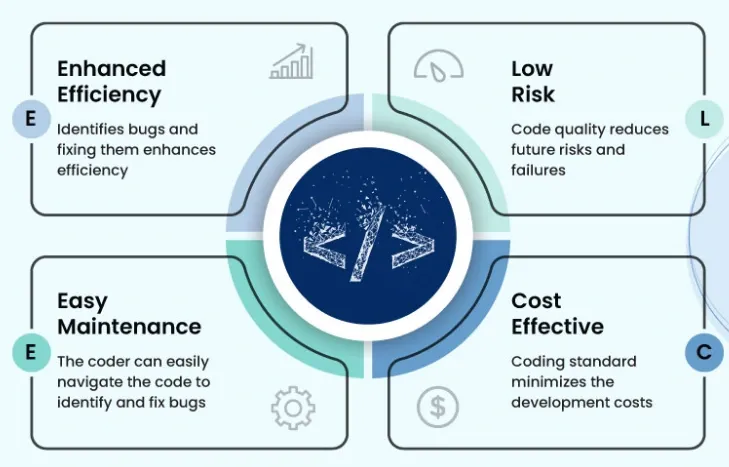
Enhanced Performance
Well-structured code is more efficient and runs faster. By avoiding unnecessary complexity, you make sure that your code performs well.
For instance, a simple, clean algorithm will often run faster and with fewer resources than a complicated, messy one.
Suggested Reading:
Logical Deduction
Fewer Bugs
Clean coding reduces the number of errors in your code. When your code is straightforward and logical, it’s easier to spot mistakes before they cause problems. This means fewer bugs and a more stable, reliable software product.
Best Practices for Writing Clean Coding
The best practices for writing clean coding are the following:
Meaningful Naming
Use descriptive names for variables, functions, and classes. This makes your code more understandable.
For example, instead of naming a variable x, name it totalPrice if it stores the total price of an order. This way, anyone reading your code knows exactly what the variable represents.
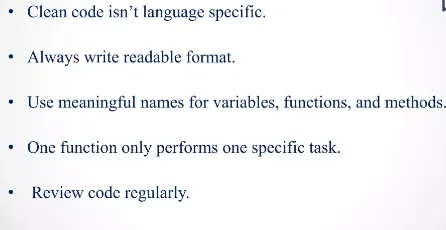
Consistent Formatting
Maintain a uniform style throughout your code. This includes consistent use of indentation, spacing, and brackets.
For instance, always indent your code the same way, so it’s easy to follow the structure of your loops and conditionals.
Keep It Simple
Avoid adding unnecessary complexity. If a piece of code can be written in a simpler way, do it. Complex code is harder to understand and more prone to errors.
For example, instead of nesting multiple loops and conditionals, break the problem down into smaller, simpler functions.
Commenting Wisely
Add clear and helpful comments where needed. Comments should explain why certain decisions were made, not just what the code is doing.
For instance, instead of writing a comment that says // add 5 to x, explain why you’re adding 5 to x, like // increase x by 5 to account for the minimum order fee.
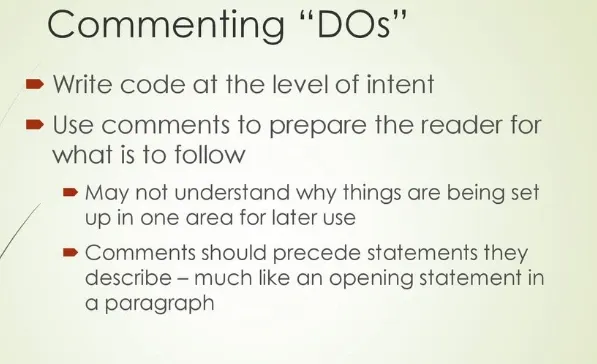
Common Mistakes to Avoid in Clean Coding
To avoid the common mistakes in clean coding, check out the following:
Over-Commenting
Avoid explaining obvious code with comments. For example, a comment that says // set x to 10 is unnecessary if the code x = 10; is self-explanatory.
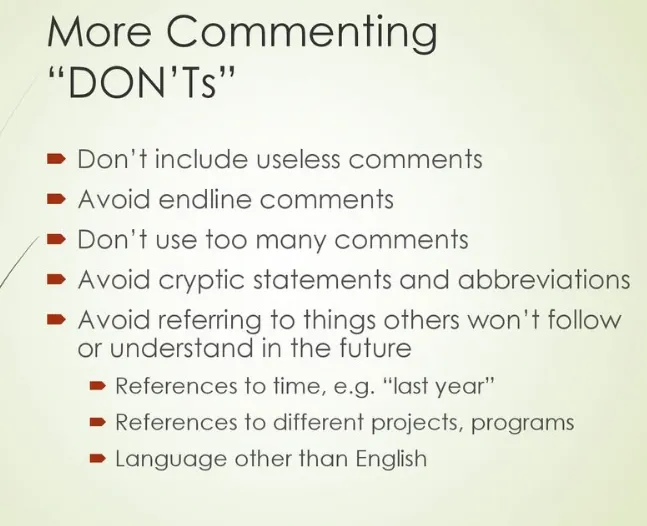
Complex Code
Writing code that is hard to understand should be avoided. Stick to the principle of simplicity. Code that is too complex is difficult to debug and maintain.
Inconsistent Naming
Using different names for similar items leads to confusion. Always use consistent names for variables and functions that perform similar roles.
Neglecting Refactoring
Ignoring the need to revisit and improve code over time is a mistake. Regularly refactor your code to keep it clean and efficient.
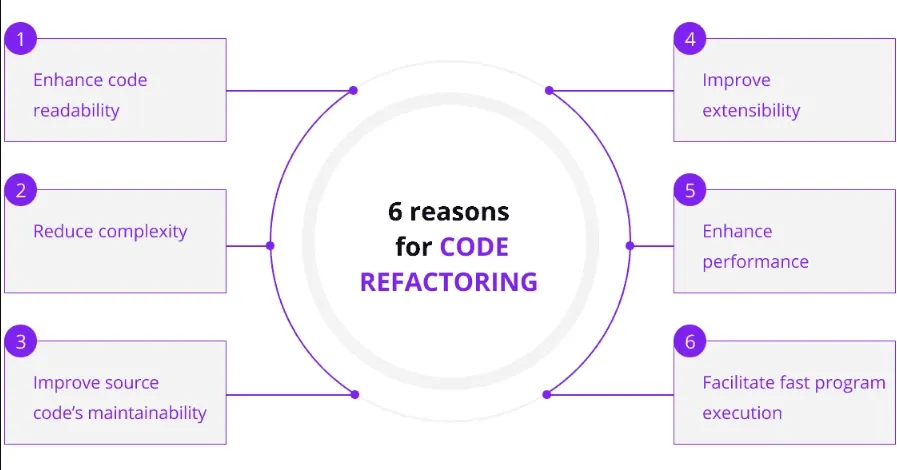
Frequently Asked Questions (FAQs)
Why is clean coding important?
Clean coding is important because it makes your code easier to maintain, reduces bugs, and improves collaboration among developers. It leads to more efficient, reliable, and scalable software development.
What are the key clean coding principles?
The key clean coding principles include readability, simplicity, and consistency. These principles ensure that the code is easy to follow, avoids unnecessary complexity, and maintains a uniform style.
How does clean coding improve collaboration?
Clean coding improves collaboration by making the code more understandable for all developers involved. When code is written clearly and consistently, team members can work together more effectively and contribute without confusion.
What are common mistakes to avoid in clean coding?
Common mistakes in clean coding include over-commenting, writing complex code, inconsistent naming, and neglecting refactoring. Avoiding these mistakes ensures that your code remains clean and maintainable.
How can I start practicing clean coding?
You can start practicing clean coding by following best practices like using meaningful names, maintaining consistent formatting, keeping your code simple, and adding helpful comments only where necessary. Regular refactoring also helps maintain clean code.
